Scientific Advisory Board
The Scientific Advisory Board’s role is to advise CCC’s board of directors on strategic initiatives that support the mission of CCC. Led by Dr. Gemma Carvill, the SAB is comprised of leading scientists and clinicians around the United States. Their duties include reviewing and advising research grant applications and proposals, meeting annually to discuss the landscape of CHD2 research, and providing expert opinions about the direction of CCC's research program. We gratefully acknowledge their time and dedication to CCC's mission.

Matthew Fuller, PhD - CHAIR
Matthew Fuller, PhD, is Vice President – Head of Gene Therapy Research at Ultragenyx, leading execution of program and platform research to continually optimize and invest in Ultragenyx’s gene therapy platforms and programs. Matthew has contributed to the development of 8 rare disease gene therapy programs, including 4 currently in clinical trials, and is co-inventor on 7 patents related to gene therapy. Matthew serves on the FNIH Bespoke Gene Therapy Consortium Steering Committee, as a member of the scientific advisory board for the Coalition to Cure CHD2, as a member of the scientific advisory board for the Myhre Syndrome Foundation, as a member of the scientific advisory board for IDefine, and as chief scientific advisor for the Cohen Syndrome Research Foundation. Matthew also serves on the Education Committee and the Patient Outreach Committee for the American Society for Gene and Cell Therapy. Matthew is also serving his 3 rd term as an elected official of the Board of Health in Millis, Massachusetts.
Matthew earned a PhD in microbiology from the University of Missouri – Columbia studying host-cell interactions of autonomous Parvoviruses with Dr. David Pintel, and a MSPH in Public Health with a focus in Tropical Medicine from Tulane University.
.png)
Danielle Andrade, MD, MSc, FRCPC
Dr. Andrade is a Professor of Medicine (Neurology) at University of Toronto and the Medical Director of the Epilepsy Program of University Health Network, University of Toronto. She is also the Director of the Adult Genetic Epilepsy (AGE) Program at University of Toronto, a pioneer program established to promote care and research in adult genetic epilepsies. She is also the former Chair and now Co-Chair of the ILAE Task Force on Child to Adulthood Transition.
Dr. Andrade’s research interests are on the area of genetic epilepsies and their natural histories and the field of transition of care from pediatric to adult. Dr. Andrade and her team have identified and characterized several epilepsies and comorbidities in adults with genetic epilepsies, including Dravet syndrome. She has also identified the first gene associated with SUDEP (sudden, unexpected death in epilepsy) in patients with non-syndromic epilepsy. Her team has also discovered genes responsible for Lennox-Gastaut syndrome, Jeavon’s syndrome, teenage-onset neuronal ceroid lipofuccinosis progressive myoclonus epilepsy, among others.

Stéphane Auvin, MD, PhD, FAES
Stéphane Auvin is an Epileptologist and Child Neurologist and Chair of the Pediatric Neurology Department at Robert Debré University Hospital & Université Paris-Cité, France. He is a senior member of the 'Institut Universitaire de France' (IUF).
He is conducting the Epilepsy program and the center for rare epilepsies at Robert Debré University Hospital, APHP, Paris (CRMR épilepsies rares http://epilepsie-robertdebre.aphp.fr/centre-de-reference-des-epilepsies-rares/). He is the coordinator of the éPiRaReS consortium (three parisian epilepsy centers), member of the ERN Epicare.
His clinical and research activities are focused on early-onset pediatric epilepsies and the epilepsy drug development. The Epilepsy program at Robert Debré Children Hospital, Paris, is involved in antiepileptic drugs development (time to event design and orphan drug development) and clinical trials (PK, Phase II, Phase III and Phase IV). His translational research team is working on early onset epilepsy and neurotransmission in the developing brain.
He is author of more than 300 peer-reviewed papers or book chapters. He has been consultant of more than 20 companies for antiseizure medication drug development and clinical trial design.
He is glad to serve the ILAE (International League Against Epilepsy) as the co-chair of the regulatory affairs Task Force (2021-2025) and the past-chair of the Pediatric commission. He has been Deputy Editor for Epilepsia (Journal of ILAE) since 2022 and a member of the board of the ILAE French Chapter and the past president (2019-2022) of the French Pediatric Neurology Society.

Helen Chen, PhD
Dr. Chen is Research Director for the Lennox-Gastaut Syndrome Foundation. She was a senior scientist in Dr. Heather Mefford’s research group at St. Jude Children’s Research Hospital. She received her B.S. in Biochemistry, and her Ph.D. in Experimental Medicine from the University of British Columbia. She completed her postdoctoral training in Dr. Ryan Potts' research group at St. Jude Children's Research Hospital investigating a rare, neurodevelopmental disorder called the Prader-Willi Syndrome. Dr. Chen’s research is focused on investigating rare, pediatric neurodevelopmental disorders and testing novel precision therapies.
Dr. Chen is a cell biologist with 15 years of research experience, specializing in stem cells, neuronal organoids, neurobiology, and translational precision therapy.
She has extensive experience in disease modelling, assay development and high-throughput screens.
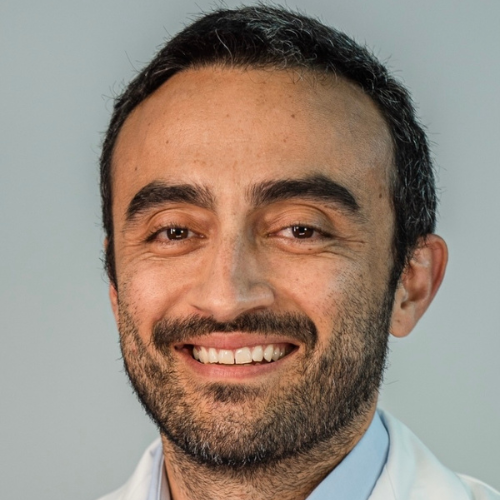
Andres Jimenez Gomez, MD
Andres Jimenez Gomez is a developmental neurologist advancing lifelong care for individuals with Developmental and Epileptic Encephalopathies (DEE) at Baylor College of Medicine (BCM) and Texas Children's Hospital, with a focus on transition-to-adulthood as well as research in DEEs and other neurodevelopmental disabilities. He is also involved in the academic and clinical education of neurology, child neurology, and neurodevelopmental disabilities trainees within BCM.
His particular interests and research lies in DEEs, comprehensive care in neurodevelopmental disorders including mind-body integration, care and education in developmental conditions and disability in low- and middle-income countries.
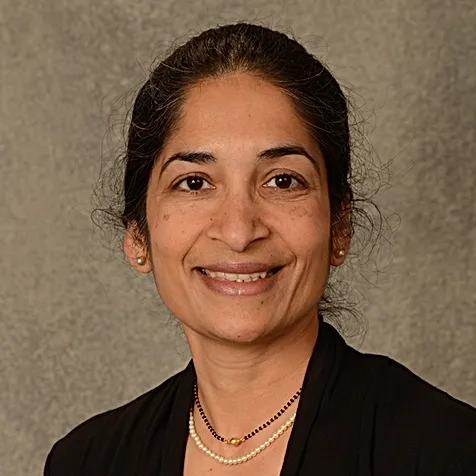
Charuta Joshi MBBS, FAES
Dr. Charuta Joshi is a clinical professor at UTSW- Dallas Children's Hospital. She is board certified in clinical neurophysiology (Canada), neurology with special certification in child neurology (USA and Canada), and Epilepsy (USA).
She received her pediatric neurology training at the New York Presbyterian Hospital in New York City and did an epilepsy fellowship at Wayne State University, Children’s Hospital of Michigan.
Her main interests are medically intractable epilepsy, health care costs, telemedicine, epileptic encephalopathy, epilepsy surgery, and the ketogenic diet. She is currently doing clinical research in epileptic encephalopathies and the ketogenic diet and is also involved in pharmaceutical trials using new drug therapies in intractable epilepsies. She has also been involved in and practiced telemedicine since 2001, initiated the telemedicine program in Iowa and invested in the telemedicine program while she was at Children's Hospital Colorado.
She has also serves on various AES committees including the Pediatric Content committee, Treatments committee, Chair of the Children's Hour and is a member of PERC since its inception. Additionally, she has participated closely in the following or led the following special interest groups which includes Infantile Spasms SIG, Doose SIG, Telemedicine SIG, Sunflower Syndrome SIG and Disparities SIG.
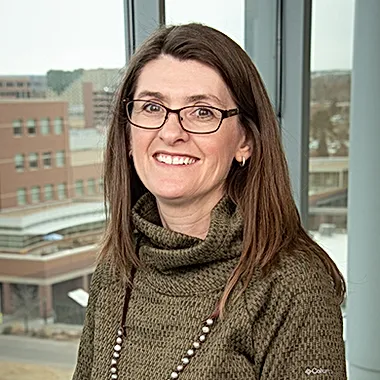
Kelly Knupp, MD, MSCS, FAES
Kelly Knupp is an Associate Professor of Pediatrics and Neurology at the University of Colorado. She received her medical degree from the University of New Mexico - School of Medicine, completed her residency in Pediatrics at Children’s Hospital of New York followed by Pediatric Neurology Residency at Columbia University at Children’s Hospital of New York. After her residency, she trained as a Clinical Fellow in Pediatric Epilepsy at the Columbia Comprehensive Epilepsy Center at New York Presbyterian Hospital.
Dr. Knupp now practices at Children’s Hospital Colorado in Aurora, CO. and is the Associate Research Director of Neuroscience Institute and Director of the Dravet Program and Co-Interim Section Chief. Her interests are epileptic encephalopathies including Dravet Syndrome and infantile spasms. She was a founding member of the Pediatric Epilepsy Research Consortium and continues on the steering committee. This group focuses on developing collaborative research across the country for children with epileptic encephalopathies. She also serves on the medical advisory boards of the Epilepsy Foundation of Colorado and the Dravet Syndrome Foundation and the scientific advisory council of Cure Epilepsy.

Lieven Lagae, MD, PhD
Lieven Lagae is Full Professor and Head of Paediatric Neurology Department at the University Hospitals of Leuven, Belgium. He has a particular clinical and scientific interest in childhood epilepsy and is involved in many research projects including zebrafish epilepsy models, brain stimulation, preventive treatment in TSC, the use of fenfluramine and analogues in Dravet and refractory epilepsy syndromes.
Lieven Lagae is the past President of the European Paediatric Neurology Society. He is one of the Directors of the European Brain Foundation and Member of the Steering Committee of EpiCare, the European Reference Network for Rare and Complex epilepsies. He chairs the Medical Therapy Commission of the International League of Epilepsy (ILAE).
He serves at several scientific journal editorial boards and pharma company advisory boards. Currently, he is Associate Editor for ‘Epileptic Disorders’ and ‘Epilepsy Research’.
He received the ‘Cures within Reach Patient Impact Clinical Award’ in 2017, the 2019 Honorary Award of German speaking Pediatric Neurology Society and the 2019 Aicardi Award of the EPNS.

Nick Lench, PhD
Professor Nick Lench joined NATA as Executive Director in January 2022. Nick has over 35 years' of academic, NHS healthcare and commercial experience in medical genetics and genomics. He is a co-founder of Congenica Ltd, a world-leading digital health company providing genome data interpretation and diagnostic services for patients with inherited and acquired genetic disorders. He was Director of Genetics Services at Great Ormond Street Hospital for Children, London and is an honorary Reader at the UCL Institute of Child Health. He was awarded a Personal Chair in Medical Genetics at Cardiff University in 2005, was a founding CEO of London Genetics Ltd and Programme Director at Oxagen Ltd.

Christopher McGraw, MD, PhD
Dr. Chris McGraw MD, PhD is a physician-scientist with an interest in epilepsy genetics and the use of animal models to better understand a variety of epilepsy disorders and to identify novel treatments.
Dr. McGraw received his BA in Biochemistry and Cell Biology, magna cum laude, at Rice University in 2004 and he completed a combined MD/PhD program at Baylor College of Medicine (BCM), earning a PhD in Developmental Biology under Dr. Huda Y. Zoghbi, MD in 2012 before graduating in 2014. He completed residency in Adult Neurology at University of California San Francisco (UCSF), where he received a competitive R25 award to study epilepsy in zebrafish with Dr. Scott Baraban PhD. He completed an Adult Epilepsy Fellowship at Massachusetts General Hospital (MGH) in 2020. He is currently an Instructor at MGH and Harvard Medical School (HMS), and serves as an Adult Epileptologist on the MGH Epilepsy Service and in the Herscot Center for Tuberous Sclerosis Center at MGH. He continues to pursue basic science research in zebrafish through the Epilepsy Genetics Program at Boston Children's Hospital (BCH) with Dr. Ann Poduri, MD, MPH. Dr. McGraw is site PI for the Epilepsy Learning Healthcare System (ELHS) at MGH, a multi-center initiative to improve the quality of care for patients with epilepsy. His work is supported by an NINDS K08 Career Development Award to develop a zebrafish model of myoclonic astatic epilepsy due to mutations in SLC6A1 and to develop an in vitro assay for positive modulators of SLC6A1. He is also supported by a CURE Taking Flight Award to identify modifiers of seizure susceptibility in zebrafish as targets for novel anti-epileptic drug development.
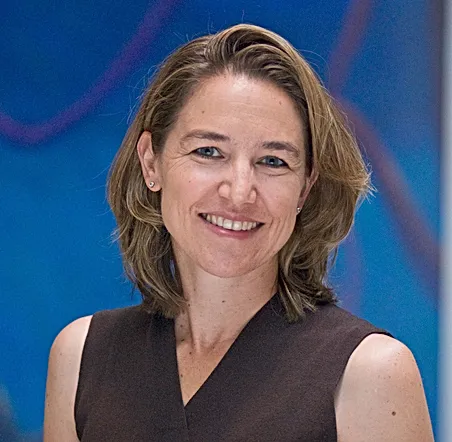
Heather Mefford, MD, PhD
Heather Mefford is a physician scientist and Member in the Center for Pediatric Neurological Disease Research at St. Jude Children’s Research Hospital. She completed the MD and PhD in Genetics at University of Washington, after which she completed a Pediatrics residency and Medical Genetics fellowship at UW and Seattle Children’s Hospital. She went on to establish her research program in the genetics of rare pediatric disease at UW, where she remained until moving to St. Jude Children’s Research Hospital in 2021. Her research is dedicated to gene discovery in pediatric neurological diseases, focusing on epilepsies, with the goal to leverage information about genetic etiology to develop precision therapies. Her work helped define the genetic landscape of rare developmental and epileptic encephalopathies using cutting edge genomic technologies. Using engineered and patient-derived cells, her group develops cellular models of genetic epilepsy for characterization and testing potential targeted therapies. She is a scientific advisor for several patient advocacy groups, co-chairs the ClinGen Neurodevelopmental Disorder Clinical Domain Working Group and Epilepsy Gene Curation Working Group, was co-PI for the Epi4K Consortium, and is Secretary of the Board for the American Society of Human Genetics.
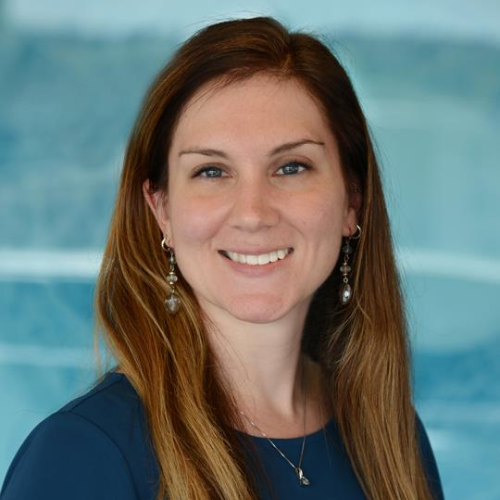
Andrea S. Miele, PhD, ABPP-CN
Andrea S. Miele, Ph.D., ABPP-CN is an Assistant Professor of Pediatrics at the University of Colorado School of Medicine and serves as a board-certified Pediatric Neuropsychologist in the Section of Child Neurology. Dr. Miele has primary clinical interests in rare disorders, and she specializes in working with children with developmental and epileptic encephalopathies, neurodegenerative diseases including Batten Disease and GM1 gangliosidosis, and neuromuscular diseases including Spinal Muscular Atrophy – Type 1 and Duchenne Muscular Dystrophy. Her research interests include neuropsychological functioning in children with Chromosome 8p, Ring14, and Koolen de Vries Syndromes as well as treated and untreated neuromuscular disease, Batten Disease/the NCLs, and the STXBP1, Syngap1, SCN2A/8A, GRI, and SLC6A1-related disorders. She has a passion for data access and collaboration, especially across the rare disease space.
Dr. Miele received her bachelor’s degree in psychology with a biopsychology concentration from the College of the Holy Cross in Worcester, Massachusetts and her doctoral degree from the University at Albany, State University of New York. She completed internship/residency in lifespan neuropsychology (combined child and adult) at Long Island Jewish Medical Center, and a two-year postdoctoral fellowship also in lifespan neuropsychology at Brown University.
.png)
Vanesa Nieto-Estevez, PhD
Vanesa Nieto-Estevez, earned a B.S. in Biology from the University of Alcalá (Spain) and a Ph.D. in Neuroscience from the Cajal Institute in Madrid, Spain. During her Ph.D., she investigated the effects of growth factors on embryonic and adult neurogenesis using stem cell and mouse models. As a postdoctoral researcher in the Hsieh Lab (UTSW and UTSA), she utilized brain organoids derived from pluripotent stem cells to study ARX-related epilepsies. Since 2022, she has served as an Assistant Professor of Research at UTSA, where her work focuses on understanding neurodevelopmental disorders through the use of 3D organoid models.
.png)
Douglas R. Nordli, Jr, MD
Doug Nordli is a professor and chief of the section of child neurology at the University of Chicago. After earning his medical degree from Columbia University, he completed a pediatric residency, child, neurology residency, and post-doctoral clinical fellowship in EEG and epilepsy at Columbia Presbyterian Medical Center. His career has focused on infantile epilepsy, including its classification, genetic causes, and treatment. Other interests include pediatric EEG, quantitative EEG analyses, epilepsy surgery, febrile seizures, and the ketogenic diet. Recently, he has partnered with Data for the Common Good (D4CG) to create an international repository for monogenic epilepsies with particular focus on EEG data.
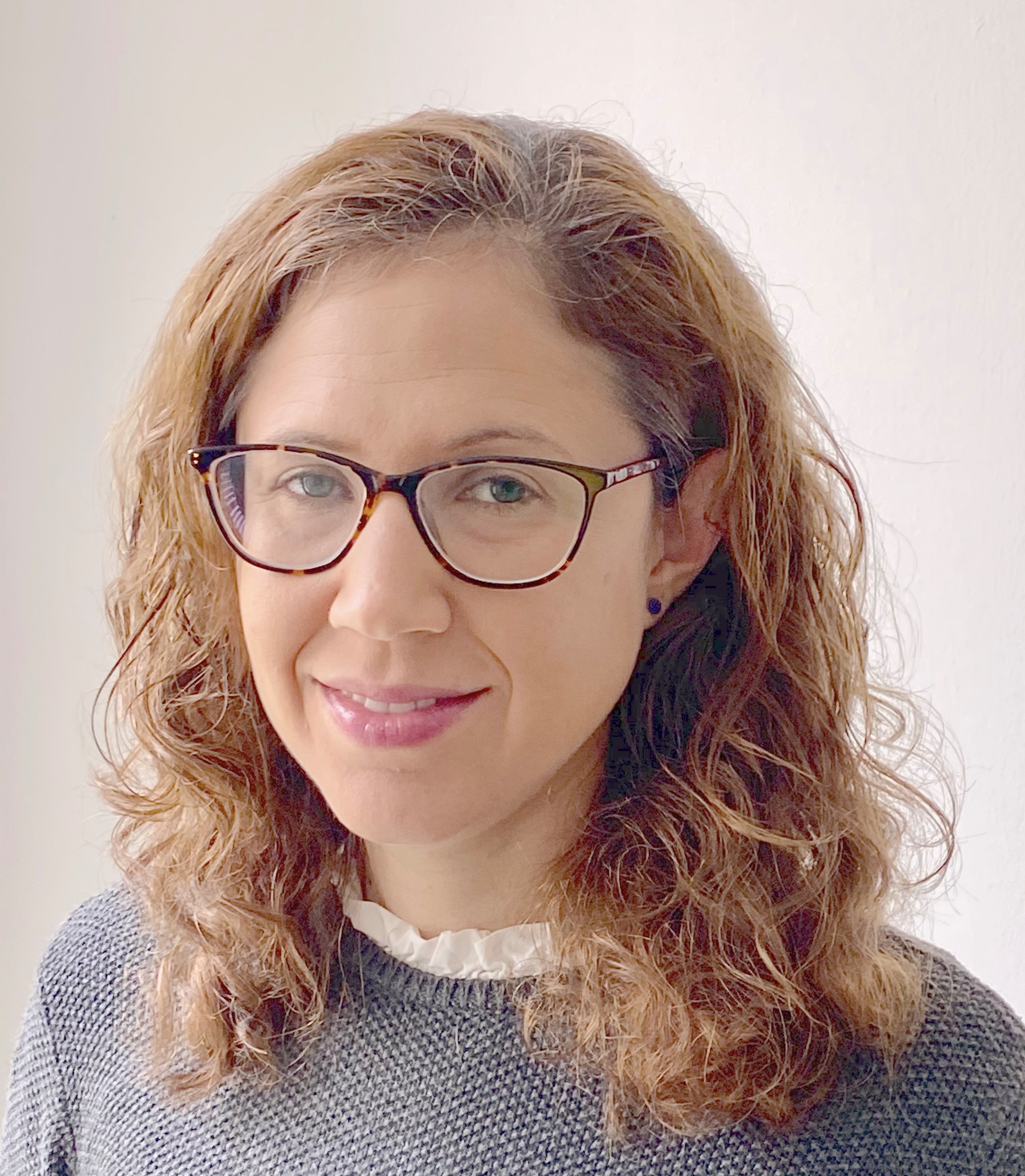
Moran Rubinstein, PhD
Moran Rubinstein is an Associate Professor at Tel Aviv University, affiliated with the Department of Human Molecular Genetics and Biochemistry, the Goldschleger Eye Research Institute, and the Sagol School of Neuroscience. She completed her Ph.D. at Tel Aviv University in 2010 and pursued postdoctoral training at the University of Washington in Seattle, USA, until 2015. In 2024, she was promoted to Associate Professor at the Faculty of Medicine at Tel Aviv University.
Her research focuses on the neuronal and molecular mechanisms underlying neurodevelopmental disorders, particularly severe epilepsy and autism. Her lab employs genetic, electrophysiological, and behavioral approaches to study conditions such as Dravet Syndrome, GRIN2D-related epileptic encephalopathy, and CHD2-related epileptic encephalopathy. Notably, she co-developed a novel viral-mediated gene therapy for Dravet Syndrome in collaboration with Dr. Eric Kremer from CNRS, France, demonstrating efficacy in both juvenile and adult mouse models.
In addition to her research, she contributes to the scientific community through editorial roles, including serving on the editorial board of the Journal of Molecular Neuroscience and as a guest editor for Frontiers in Pharmacology.

Parul Varma, PhD
Parul Varma is an Assistant Professor of Research at UTSA. Her research interest involves understanding molecular mechanisms in neurodevelopmental disorders. To investigate these mechanisms, she uses patient specific stem cell models coupled bioinformatic approaches.

